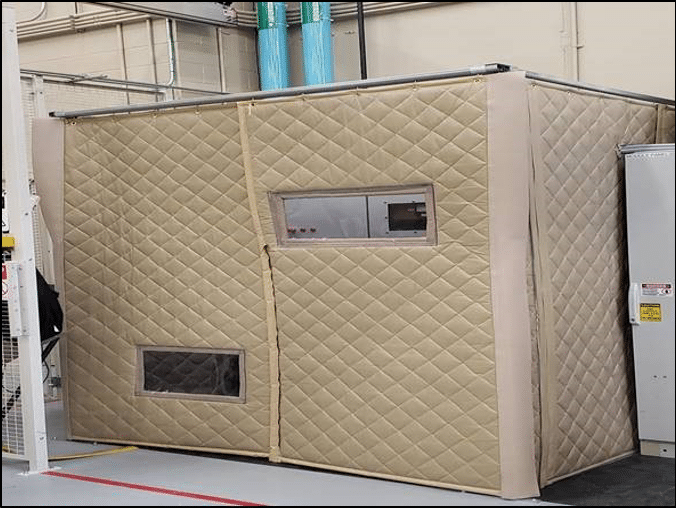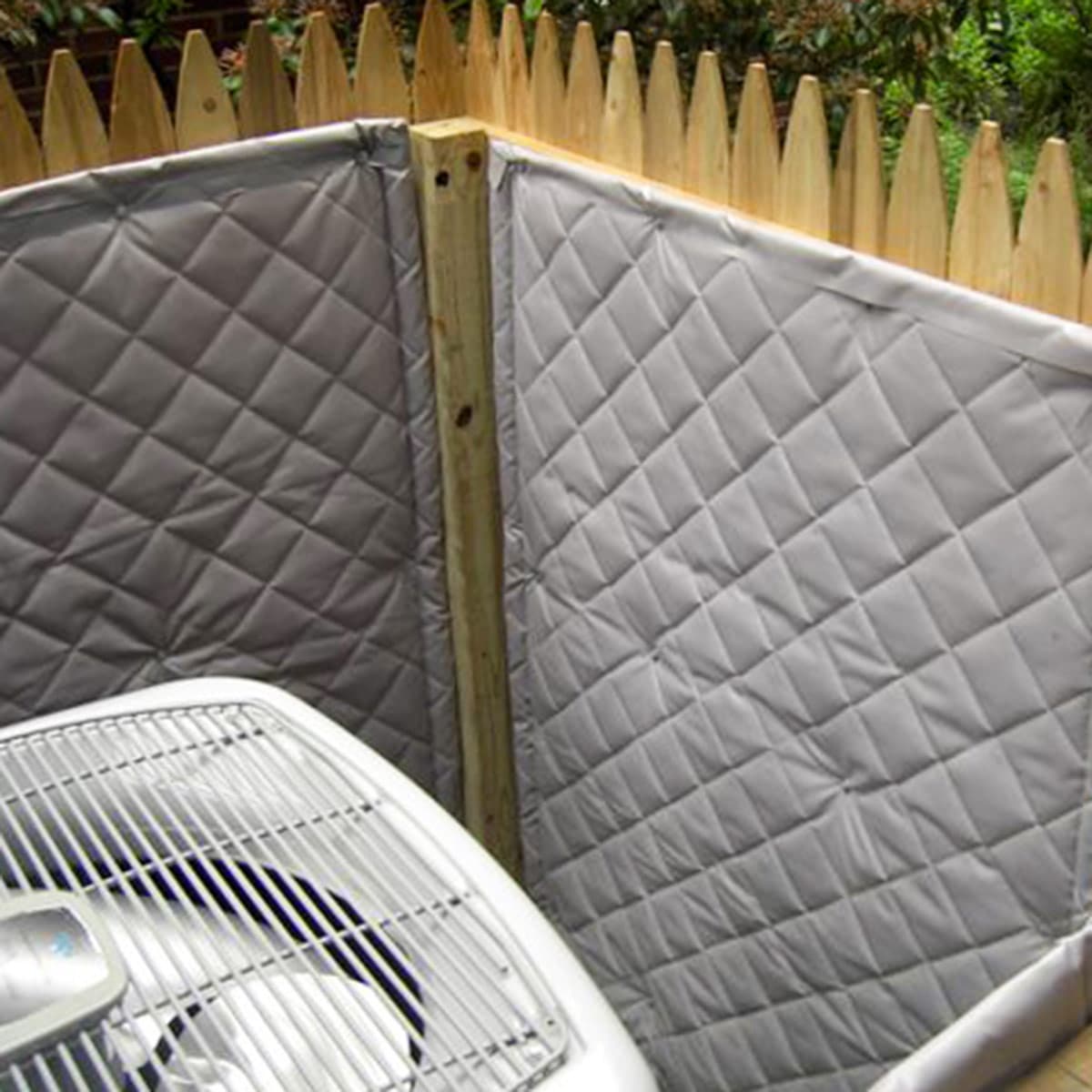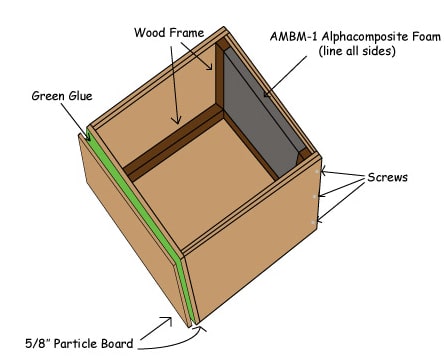
An oversize sound enclosure deadened the high-pitched whine of machinery
You never know how much you love generators until they save the day, or maybe even your life! All is well when the power is on, but should it ever go out…
Well, things can go bad quickly. You just never know when that winter storm is going to intensify enough to drop three feet of snow instead of one, snapping (or burying) powerlines for a day or more, or if that tropical storm heading north decides to track south and intensifies into a hurricane, an even worse menace to power lines and major disruptors of power.
The fix for all of this is actually rather simple: generators! Essentially mini power stations, generators are utilized when the power is out (or, with portable generators, in situations where there is no power hookup) to provide power by converting fuel sources such as gasoline, diesel, propane, and natural gas into electricity. Generators aren’t just for personal, residential use either. They are critical components of hospitals, for example. While it’s inconvenient for your power to go out at home, imagine a hospital with hundreds of patients, some in surgery, many if not most hooked up to electrically-powered equipment, suddenly losing power for an extended amount of time. During disruptive major winter and tropical storms, banks of generators at hospitals keep healthcare underway until normal power can come back online.
After the recent Texas “snowmageddon,” I received numerous calls from customers who fared just fine through the event because of their generators, but after relying on them for a day or more, realized that they are LOUD. I got calls from both residential and commercial customers, and if you think one generator outside your home is loud, imagine ten of them outside the window at a hospital! My customers wanted to know if there were any materials or product solutions they could employ to make them more quiet, and indeed there are! Let’s dive in and find the right acoustical solution for your generator situation.
Why Generators Are So Noisy
Generators create electricity by converting mechanical or chemical energy, and the conversion process isn’t quiet. Think of a lawn mower or gas-powered car engine as decent comparisons. These machines take in gasoline, ignite it, the mini explosion of which mechanically moves a piston which turns an assortment of parts that make up the drivetrain that turns the wheels. Explosions and cranking and turning metal — noisy! Why are electric cars so quiet, you ask? Because they are not converting energy! Electrical energy is already stored in the battery and is being supplied directly to the electric engine.
Generators usually utilize gasoline or diesel to create electricity. Some, typically the larger generators and banks of large generators, like at hospitals and other critical infrastructure, may operate with natural gas pumped directly from the same gas lines that the structure normally uses for heating. No matter which fuel source, the generators have to convert it to electricity, and they are going to be noisy. So let’s fix that!
4 Ways to Quiet a Generator
1. Distance
Let’s start with the easiest, cheapest solution. This may seem obvious, but you never know! If you have the space, moving your generator further from your house or structure can help—maybe significantly.
Generally speaking, if you double the distance the generator is away from your space, you can gain a 6dB reduction in noise (though this is only true in a free field environment with no reflective surfaces near the noise source.)
For those with lots of land, or those designing a hospital or other large structure from scratch, having the generator as far away as possible will help reduce its noise.
2. Acoustic Barriers – Enclosures, Walls, and Fencing

Residential HVAC with a fence and acoustical treatment to reduce the noise.
Wood or plastic fences will do very little—if anything—when it comes to making a generator quieter. If you are going to create an enclosure around your generator, you may as well go all the way and seriously reduce noise by employing acoustic insulation materials. For most generator use cases, a fence that is constructed as tall as possible and lined with our PrivacyShield® ABBC-13 EXT Exterior Soundproofing Blankets will do an excellent job at massively reducing the noise generators create. You can even do the same with portable generators. Whether on film sets, festival events, or even while camping or hunting, you can use the same soundproofing materials we discussed and make a portable enclosure to match your portable generator.
3. Soundproofed Enclosures

I have a separate write-up that discusses how to use Green Glue Noiseproofing Compound, Soundproofing Composite Foam, and Acoustical Caulk to create a fantastic soundproof enclosure for generators, or any other kind of loud machine you may want to quiet. This is definitely the optimal solution for residential applications, and is a comparatively inexpensive way to soundproof larger generator banks at commercial facilities. Remember, we want to help, not hurt your machinery so when considering this type of solution you will want to contact the manufacturer of the machine to determine how much air space it needs around it to operate without causing any issues or voiding any warranties.
4. Anti-Vibration Mounts (AVM)
Anti-vibration mounts can be placed underneath the generator to isolate vibrations caused during electricity generation. Though these mounts will only reduce vibration—and will not stop sound at all—they can reduce the additional production of sound created by a generator’s movement with at-home generators.
Find the Right Soundproofing Products for Your Unique Generator Situation
At the end of the day, generators are super important devices, even critically important in commercial endeavors, but the trade-off is noise. That said, this issue is a rather small one that can be readily overcome! Give me a call today and we can discuss your situation and I’ll be happy to steer you towards the right soundproofing materials to make your generator a much quieter friend!
To learn more about how Acoustical Solutions can solve your noise control problems, use our contact form, call one of our Acoustical Sales Consultants at (800) 782-5742, or visit us on the web at acousticalsolutions.com.